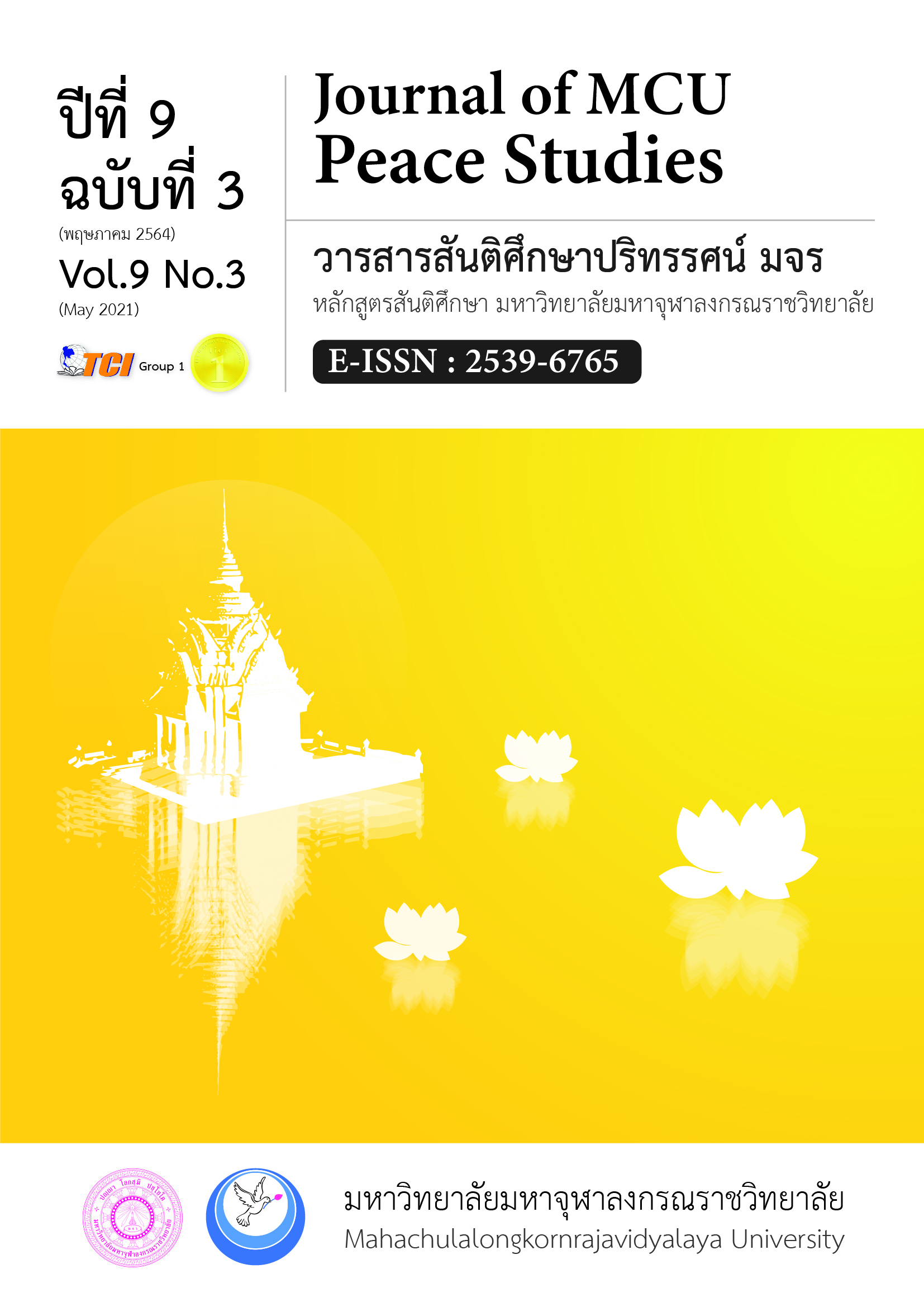Findings of Problems and Needs Regarding a Development of an Instructional Model Based on Active Learning and Self-regulation to Promote Classroom Research Competencies for Thai Language Teacher Students
Main Article Content
Abstract
The study was to explore problems and needs in developing an instructional model based on active learning and self-regulation to promote classroom research competencies for Thai language teacher students of a Northeastern teacher institute. The population was 65 lecturers and 1,260 teacher students of Thai language teaching major. The samples were selected; 12 lecturers by purposive sampling technique and 120 teacher students by proportional stratified random. The research tools were 1) a rating-scale survey and 2) a semi-structure interview form. Analyze quantitative data Using the method to summarize the results, mean, standard deviation. And finding the index of priority of the need the actual and the intended condition in the development of teaching and learning styles. And analyze the qualitative data through content analysis. It was found that the priority needs index (PNI) between current situations and expected outcome in developing a teaching model which include 2 aspects. First, the needs on a teaching model development based on active learning and self-regulation showed that the lecturers rated PNI = 0.22 whereas the teacher students rated PNI = 0.19. Second, the needs on promoting learners to have classroom research competencies showed that the lecturers rated PNI = 0.29 whereas the teacher students rated PNI = 0.16. The interview findings revealed that lecturers and teacher students needed to have an alternative teaching model developed which is based on active learning and self-regulation to promote classroom research competencies since active learning supports learners to construct knowledge by themselves, moreover, they could learn collaboratively, get suggestions from teachers, explore various materials and get evaluated by authentic assessment. If students are able to regulate themselves, they could outperform classroom research competencies in responding to learning objectives.
Article Details
Views and opinions expressed in the articles published by The Journal of MCU Peace Studies, are of responsibility by such authors but not the editors and do not necessarily reflect those of the editors.
References
Bandura, A. (1986). Socail foundations of thought and action: A social cognitive theory.Englewood Cliffs NJ:Prentice – Hall.
Bonwell, C. C., & Eison, J. A. (1991). Active Learning: Creating Excitement in the Classroom. Washington D.C.: ERIC Clearinghouse on Higher Education.
Chantawanich, S. (2010). Qualitative data analysis. Bangkok: Chulalongkorn Publishing University.
Dale, Edgar. (1965). Audio – Visual Methods Teaching. (2nd ed.) New York: Hot, Rinchart and Winston.
Dechakhup, P., & Yindisuk, P. (2017). 7C skills for teachers 4.0.Bangkok: Chulalongkorn University. Iamsuphasit, S. (1998). Theories and techniques of behavior modification. (3rd ed.). Bangkok: Publisher of Chulalongkorn University.
Kaeocharoenkit, N. (2007). The role of the teacher in organizing activities and methods of implementing the Active Learning guidelines. Retrieved July 25, 2019, from http://www.itie.org.
Krutthong, K. (2013). Teaching and learning management Research-Based Learning (RBL). Retrieved October 25, 2013, from http://isdc.rsu.ac.th/kmweblog.php?page=detail&id=2
Naiphat, O. (2015). Measuring learners in the modern world of 21st century learning. Documentation for Moral and Ethical Evaluation (According to the standard Framework National qualifications -TQF). Bangkok: Srinakharinwirot University.
Office of the Basic Education Commission (2017). PLC Process Driving Training Manual (Professional Learning Community) Professional learning community. To school.
Office of the Higher Education Commission (2010). Handbook of Internal Educational Quality Assurance, Higher education institutions 2010 (November 2010issue).Bangkok: Office of the Higher Education Commission.
Phakdichit, Y. (2014). Results of the learning process of the project model in the course study. Develop a curriculum. Nakhon Sawan: Faculty of Education, Nakhon Sawan Rajabhat University.
Pintrich, & De-Groot. (1990). Understanding and Self-Regulation Learning.San Francisco: Jossey Bass Plublishers.
Sinthapanon, S. (2017). Modern teachers and learning to Education 4.0.Bangkok: Chulalongkorn University.
Suwannawayla, C. (2002). Thai Higher Education. Bangkok: Faculty of Education, Chulalongkorn University.
The Secretariat of the Teachers Council of Thailand. (2013). Practice Manual for Extension of Educational Professional License. Bangkok: The Teachers Council of Thailand.
Watthayu, K. (2005). Research to improve educational quality. Bangkok: Thanaporn Printing.
Zimmerman, B. J. (1989). A Social Cognitive View of Self-Regulated Academic Learning. Journal of Educational Psychology, 81(3), 329–339.


